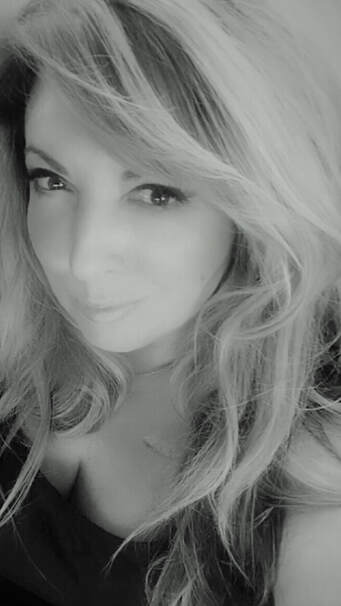
Who is a Millennial? Anyone born after 1972 to 1999. Yes, Wikipedia will tell you 1980, but Dr. Jean Twenge, author of Generation Me (2006), traces the cultural shift to a change in public school curricula that focused more on the value of the individual a la postmodernism. Postmodernism is the reason we have individual or i-technologies today. Individuals mattered more post-WWII and Nazism's "final solution." Wholesale killing of people for no reason is of no benefit to anyone. That kind of fundamentalism is something Northwestern found to be connected to cognitive damage in a 2017 study (Neuropsycholigia, Jun;100: 18-25).
Jamie Ducharme's June 2019 article in Time magazine shows a 33% increase in suicide since 1999. What that basically means is that, in the span of one generation (or 20 years), nearly one-third more of the population want to die. That's significant. According to a September 2019 update from the World Health Organization, close to 800,000 people die each year from suicide. It's also the second leading cause of death among both Millennials under 29 and Gen Z over 15. Acute emotional distress" and "chronic pain" are two of the major reasons a person chooses to die instead of live (who.int).
When we look at the facts, it's clear that there is a global issue with grief and grieving. Though many suicides occur in low-middle income countries, plenty happen to those with no debt, jobs, and what others might consider to be "perfect" lives. But in order to better understand our collective grief, let's first identify what grief is. Like depression, there is more than one category. Humans tend to be resistant to change so use labels as a way to reign people (and ideas) in. But grief is as varied as the more than seven-billion humans on the planet. For example, complicated grief is when you have a major unresolved loss, and can't get back to normal life afterward. This is often associated with the sudden or tragic death of a loved one. But you can experience the same depth of sadness if you lose a baby, are abandoned by your partner, lose your career, or experience an accident or event that irreparably changes your physicality in some way.
Uncomplicated grief is just like complicated grief, except the person has a better support system, or, seeks one out. After a period of time, one can resume living fully again. There's no one-size-fits-all answer to how much time a person needs to heal--I had a year between 2014 and 2015 where I lost everything a person could lose except my life. It was pretty awful. And I was certainly grieving. Lots of tears. But I didn't isolate myself from people and I sought the help of a licensed psychologist (sometimes referred to as a "psychotherapist" in UK--it's essentially someone with a PhD in psychology who has completed a certain number of mandatory clinical hours and is certified or licensed to practice; Ireland is developing their standards today for licensing, but all their academic programs in "psychotherapy" are currently recommending a Ph. D.). A psychiatrist is a person with a medical degree who specializes in psychiatric care. Psychologists tend to lean into talk therapy a bit more. Your doctor should always let you do the talking, no matter who you choose. A good therapist will keep you on track so you can progress through your grief, but no mental health professional (or medical professional, for that matter), should ever make you feel "less than."
The biggest difference between complicated grief and uncomplicated grief is that, with complicated grief, no matter how much time has passed or how much you try, you can't seem to move on. You are stuck and sad all at once. It can leave a person feeling hopeless and helpless. But there is hope! Just like uncomplicated grief, complex grieving is a process that can lead to eventual healing with proper support and care.
While there are a number of coping strategies that help a person through the process of grief--no matter what kind of grief you may be dealing with, it's of the utmost importance for not only your mental health, but your physical health, that you get the help you need to heal. A 2006 study in the Journal of Clinical Psychiatry found patients have higher instances of substance abuse, cancer, hypertension, heart problems, and thoughts of suicide with complicated grief (March; 67:233-239). For example, if you were abused as a child, even if an adult in your 30's, 40's, 50's, 60's and so on, you may still be experiencing complicated grief from traumatic events that occurred during your formative years. Grief is like the tide--it has a tendency to ebb and flow. Two steps forward, three steps back.
Acute grief is part of both uncomplicated and complicated grief and usually happens right after loss or trauma. Feelings of longing, yearning, anxiety, guilt--even shame--are all common. Acute grief can dominate the grieving person's life. A person may have appeared to have moved on to others, but activities are often chosen within the context of the loss, not the life of the person living the actual experiences.
Integrated grief happens during healing--the grief or pain of loss is still there but no longer dominates the person's life.
You will always miss whatever loss caused you to grieve, but you will know you are healing when you begin to see bright, shiny possibilities re-emerge in your future. Instead of feeling hopeless, you'll feel hopeful. The sense of helplessness is often replaced with gratitude--you'll be eager to help others, no longer consumed by your own pain. This is part of successfully adapting to loss.
Being out in nature, regular exercise, staying hydrated, eating a plant-based diet, maintaining social connections, meditation and tools like acupuncture and talk therapy can help a person feel more balanced whether you are grieving or not.
You are built for victory! It doesn't feel like it when you're grieving, but the fact that you can feel anything that intensely is a good sign of a good heart, and perhaps, an even better soul.
September is #WorldSuicidePrevention month. October 10th is #WorldMentalHealthDay. Be good to yourself and others! Remember, kindness is free....
*original photo copyright Rebecca Housel 2019

 RSS Feed
RSS Feed